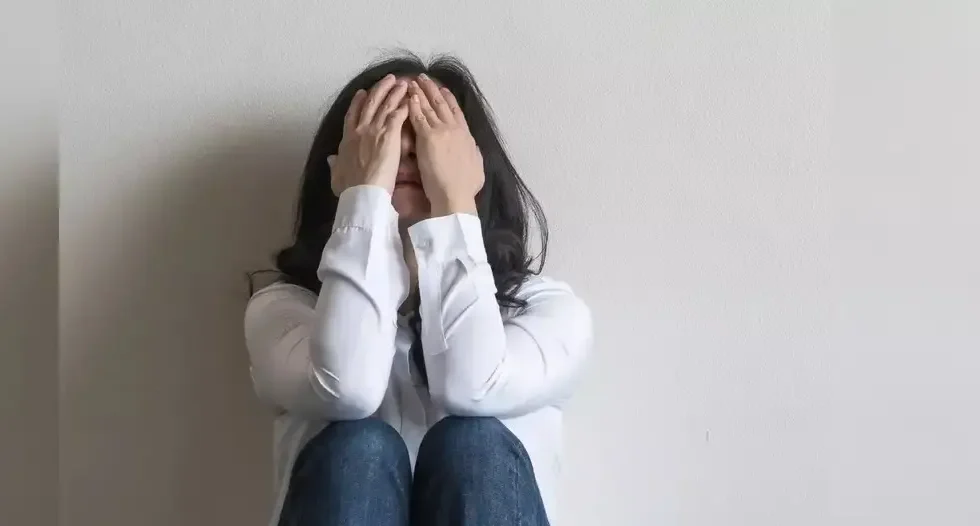In this article, we will explore various ways in which ketamine may help prevent suicides and reduce its risk. However, first, we need to understand the gravity of the problem and its causes.
Suicide is not a disease but rather a result of prolonged despair. Severe or major depression is among the leading causes of suicides. However, suicide might occur for various other reasons. It mainly occurs due to mental health issues. Some individuals are overwhelmed with troubles, and they start idealizing suicide. Since suicide kills people, it is still a significant health concern.

Figure 1 Suicide statistics – CDC US
Of course, suicide is not among the top 10 causes of mortality. However, if we dive deeper into the topic, we might discover that the problem is more severe than it seems. For example, it is among the ninth leading cause of death in people younger than 65 years of age.(1)
In fact, suicide is the second leading cause of death among individuals aged 25-34 years of age.(2)
Here again, it would be unwise to consider suicide statistics solely. That would give a wrong picture. The condition is far more common if we consider issues like suicide ideation, self-harm, and suicide attempts. Each year, more than 12 million US adults think of suicide. Yes, those are frightening figures. Attempted suicides result in millions of hospitalizations.
Modern society is going through a suicide crisis. Not only figures of suicide ideation are alarming but even more alarming is the fact that the issue is rising at an unbelievable rate.
Although we live in a prosperous society, people are still experiencing severe, overwhelming stress. It is also quite likely that the increasing incidence of mental health issues, poor stress coping strategies, and declining spiritual practices are all contributing to this new kind of epidemic in advanced societies.
Here, it is also worth noticing that suicide ideation is relatively more common in prosperous societies. This shows that the problem is not due to real troubles but rather perceived threats and poor coping abilities of the population in advanced societies. This is also due to higher stress levels and a greater prevalence of mental health issues in such societies.
Reducing Suicide Rates Through Prevention
Suicide is not a disease, but suicide ideation is. It is a kind of mental health issue that occurs for many reasons. Hence, before understanding how ketamine might help manage the problem, it is vital to understand why some people start thinking about suicide as one of the ways. Ketamine can help prevent suicide ideation, and ketamine has a role in preventing suicide attempts and, thus, suicides.
The leading cause of suicide ideation is depression. It is not just about regular depression. Suicide thoughts develop in those living with severe depression, also called major depression (MD). This kind of depression is quite challenging to manage with medications, and people living with the condition may completely lose interest in life. They just stop enjoying anything that they do.(3)
Perhaps the second common cause why anyone might think of suicide is chronic pain. Some may develop serious and life-threatening conditions causing unbearable pain. However, not everyone with pain would think about ending their life, and much depends on other factors, including genetics.
There are many other well-known reasons why some may have suicidal thoughts, like aggressive tendencies, substance use, a sense of hopelessness, and adverse childhood experiences.
If we analyze deeply, we see that suicide ideation is a result of mental health issues. This could be depression, aggression, certain adverse conditions, or behavior. Ketamine is known to help in most such cases, as it alters brain function and increases brain plasticity.
Ketamine To Overcome Suicidal Thoughts
 Suicide attempts often result in fatal outcomes. Anyone with such thoughts must seek medical treatment and consider ketamine treatment. This means that there are more than 12 million adults in the US who can potentially benefit from ketamine therapy. Further, about 2 million can benefit significantly as these are people who have already attempted suicide and need urgent help.
Suicide attempts often result in fatal outcomes. Anyone with such thoughts must seek medical treatment and consider ketamine treatment. This means that there are more than 12 million adults in the US who can potentially benefit from ketamine therapy. Further, about 2 million can benefit significantly as these are people who have already attempted suicide and need urgent help.
Before we explore how ketamine could possibly help, it is vital to understand that it is not a panacea. It would not work for all and will be of limited help when used alone. Suicidal ideation is a complex disorder, and the reasons for such an issue differ. Hence, IV ketamine therapy must be a part of the broader treatment. Most people would benefit by combining multiple treatments like ketamine therapy with psychological help, psychotherapy, social support, exercise, learning stress management, psychiatric treatment, and more.
The good thing about ketamine IV therapy is that it is quite safe. In the therapy, healthcare workers give patients low-dose IV ketamine infusion over about 40 minutes a week. Most would require multiple treatment sessions to feel the benefit.
Nonetheless, what is incredible about ketamine is that just one infusion a week is enough. Moreover, most can experience benefits within hours. This is unlike most medical drugs that need months to start working. Even more amazing is the fact that its effect lasts for very long. Many people might make a complete recovery after just a few infusions, something that is not possible to establish using oral drugs.
Of course, ketamine has mind-altering properties. Thus, IV infusion is given in clinical settings, or a healthcare worker may visit a person and provide the infusion under supervision. A person will be observed for a couple of hours, as IV infusion might cause mild disorientation and confusion. However, such unpleasant effects do not last much longer.
Of course, those considering IV ketamine therapy must share all health details with the doctor or healthcare workers, like what medications a person is taking and whether a person has issues like diabetes, heart disease, or other mental health issues. Many of these conditions are not contraindications for therapy, but doctors or healthcare workers would need to take additional precautions.
Now, let us look at some of the ways in which ketamine therapy may help prevent suicides.
Ketamine and Suicide Risk Reduction
Here, it is vital to understand that there is some sound scientific evidence that ketamine can help reduce suicide risk. There are many studies showing that ketamine works almost instantaneously and may reduce suicide risk for several hours to days. However, researchers are less clear about whether such a benefit persists for long.
One of the studies published in the journal BMJ in 156 individuals with suicidal thoughts found that slow IV ketamine infusion given slowly over 40 minutes is very effective. Most of the patients who received such an infusion reported feeling relaxed, and they were able to get rid of suicidal thoughts. This effect was seen for several hours after the therapy. However, it is unclear if such an effect persists for long or not.(4)
What is good about ketamine is that it is both an emergency treatment and a long-term remedy for suicide ideation. Although many studies confirm these benefits, there is still a need for more studies. Most studies on the topic suffer from one major limitation: they did not have a long follow-up period.
Nevertheless, there are numerous studies, and researchers have now started pooling data from various studies and doing systemic reviews and meta-analyses. Most health experts and authors of such extensive studies agree that there is a piece of strong evidence that ketamine can reduce suicide ideation in the short and mid-run, although its long-term benefits are unclear.(5)
Yet another study that pooled data from many studies also tried to find how much ketamine is good. It found that ketamine may reduce suicide risk by half within a few hours, and such an effect is seen for a few days. However, they also noted that such an effect declines after about three days. This highlights the importance of multiple ketamine infusions for sustained effect.(6)
Researchers think that this benefit of ketamine could be for many reasons. It can block NMDA receptors and boost brain plasticity. It is also likely that ketamine helps due to its impact on various other brain pathways and its ability to modulate mood. Moreover, ketamine is known to improve the balance of certain brain chemicals. Further, studies show that ketamine may also influence brain centers responsible for controlling emotions. Hence, ketamine helps in many ways.(7)
Ketamine May Help Rectify Causes of Suicidal Thoughts
 When using ketamine therapy for suicide prevention, one should look at the broader picture. It is vital to understand that researchers have focused much on the short-term benefits. However, it is essential to realize that repetitive ketamine infusions may alter emotional responses and thus help get rid of the root cause.
When using ketamine therapy for suicide prevention, one should look at the broader picture. It is vital to understand that researchers have focused much on the short-term benefits. However, it is essential to realize that repetitive ketamine infusions may alter emotional responses and thus help get rid of the root cause.
Just take the example of depression. It is the leading cause of why many people start thinking about suicide. In most cases, a suicide attempt is due to some pre-existing mental health issue. In many instances, these mental health conditions remain undiagnosed.
This is because many living with suicide ideation do not share their thoughts with others. Moreover, most such individuals have limited social interaction. These are people who have lost interest in life, and thus they have withdrawn from the society. Hence, consistently low mood, fewer friends, lack of sleep, or excessive sleep may all indicate depression and suicide risk. Those at risk may also stop engaging in self-care. Hence, it is vital to understand that suicide risk can only be reduced by countering underlying mental health problems.
One of the groundbreaking studies found that ketamine is one of the most effective treatments ever discovered for those living with resistant depression, severe generalized anxiety, and suicide ideation. Generally, such people are challenging to manage as they do not respond to treatments.
However, one of the clinical studies found that 15 weekly IV ketamine infusions could help 85% of the patients result in complete resolution of the problem. These are excellent results, as no other known medication has shown such excellent outcomes.(8)
The same study found that such a drastic reduction in suicide risk was mainly due to its impact on mood disorders. IV ketamine therapy could help reduce depression in 50% of the patients and could result in a complete cure of depression in about 20% of the patients.(8)
These findings are highly encouraging as oral anti-depressants have limited benefit in managing such conditions. They take months to start acting, and they also fail to help in a large number of cases. Even worse, anti-depressant oral drugs cause many side effects, and they only work when taken daily. As soon as the patients stop taking those drugs, symptoms return.
Ketamine therapy is unique in many aspects as it is among the few therapies known to science that may alter brain structure in such a way that it may result in a complete depression cure. This is because ketamine increases brain chemicals and promotes brain rewiring. Of course, any such effect is much stronger when ketamine is combined with psychotherapy.
Here, it is also good to note that ketamine is good for use in a wide number of mental health conditions causing suicide ideation and not just depression. For example, generalized anxiety disorder (GAD) is very different from depression, and ketamine is still effective. In GAD, unlike depression, a person is somewhat hyperactive and worried and has many physical signs like palpitation, insomnia, and more.
Further, it is worth understanding that ketamine is also safe and good for those living with severe pain and distress. Ketamine is a US FDA-approved anesthetic and analgesic. This means that it is approved to reduce severe pain. Hence, it may also help those who are living with poorly controlled pains, which are among the leading causes of suicide ideation.
Further, ketamine generally does not cause much harm. It is also safe for use in people living with metabolic disorders. It may increase blood pressure and heart rate a bit, but such effects are short-lasting. In the long run, it may help people relax, improve metabolic health, reduce binge eating, and enhance sleep quality.
What makes ketamine a unique remedy for individuals with suicidal ideation is its broad spectrum of activity. All individuals with suicide ideation are unique, and they have different sets of problems. However, ketamine can help in many, if not most, instances. It reduces pain, improves sleep, and reduces mood and emotional disorders. Repeated ketamine infusions may result in some permanent brain changes, providing permanent relief for such ill thoughts and thus helping prevent suicides.
The Bottom Line
It is time that people realize that suicide ideation and attempts are pretty common problems. It is, in fact, the second most common reason for death among young adults. Moreover, suicide-related figures do not really show the gravity of the problem. To overcome the problem, it is essential to understand that at any given time, more than 3-5% of adults are having thoughts of ending their life.
One challenge in managing the problem is that it is not a single disease condition. Suicide is rather a result of multiple troubles. However, it appears that those living with specific mental health issues and people with poor ability to tackle problems are at a greater risk. Thus, it would be right to see suicide ideation as a complex mental health issue. If suicide is due to mental health problems, it means that it can be cured. Of course, that would require using medication with broader activity like ketamine.
Ketamine is one of the best drugs for preventing suicide ideation. Few very high-quality studies show that it can be really effective. It can help in most cases. More than 80% of those experiencing severe despair may benefit from ketamine therapy. What is incredible about this drug therapy is that it works almost instantly. It helps people relax and change their mindset, resulting in long-term benefits.
Of course, some limitations exist, such as insufficient research to show if ketamine is good in the long run. However, there is some sound reason to believe it may be good in the long run.
Studies show that issues like major depression, generalized anxiety disorder, impulsivity, and aggression are some of the significant causes of suicide attempts. Studies show that ketamine is good for all these conditions. Of course, in the short run, its benefits may be due to its mind-altering properties and ability to relieve pain and block specific neural pathways.
However, in the long run, ketamine works differently. It improves brain plasticity. It means that it makes people more open to new ideas and changes in life, and thus, they are completely able to get rid of their negative mindset.
How ketamine works in the long run still remains a bit of a mystery for science. Nevertheless, studies show that repetitive ketamine IV infusions can help. How many ketamine infusions one would need will depend on the severity of the condition. But, generally, most can expect to experience significant benefits after 10-15 infusions.
Hence, if you are living with suicide ideation or you know someone who has attempted suicide, it is essential to know that there is an effective treatment for the condition.
References
- Facts About Suicide | Suicide Prevention | CDC [Internet]. 2023 [cited 2024 Mar 18]. Available from: https://www.cdc.gov/suicide/facts/index.html
- Suicide – National Institute of Mental Health (NIMH) [Internet]. [cited 2024 Mar 18]. Available from: https://www.nimh.nih.gov/health/statistics/suicide
- Risk and Protective Factors | Suicide Prevention | CDC [Internet]. 2023 [cited 2024 Mar 18]. Available from: https://www.cdc.gov/suicide/factors/index.html
- Abbar M, Demattei C, El-Hage W, Llorca PM, Samalin L, Demaricourt P, et al. Ketamine for the acute treatment of severe suicidal ideation: double blind, randomised placebo controlled trial. BMJ. 2022 Feb 2;376:e067194.
- Sathyanarayana Rao TS, Andrade C. A possible role for ketamine in suicide prevention in emergency and mainstream psychiatry. Indian J Psychiatry. 2017;59(3):259–61.
- K Witt, J Potts, A Hubers, M Grunebaum, J Murrough, C L00, et al. Ketamine for suicidal ideation in adults with psychiatric disorders: A systematic review and meta-analysis of treatment trials. The Australian and New Zealand journal of psychiatry [Internet]. 2020 Jan [cited 2024 Mar 18];54(1). Available from: https://pubmed.ncbi.nlm.nih.gov/31729893/
- Nguyen TML, Jollant F, Tritschler L, Colle R, Corruble E, Gardier AM. Pharmacological Mechanism of Ketamine in Suicidal Behavior Based on Animal Models of Aggressiveness and Impulsivity: A Narrative Review. Pharmaceuticals. 2023 Apr;16(4):634.
- Ketamine for Suicidal Ideation Achieves Breakthrough Response [Internet]. Psychiatrist.com. 2022 [cited 2024 Mar 18]. Available from: https://www.psychiatrist.com/news/ketamine-for-suicidal-ideation-achieves-breakthrough-response/




